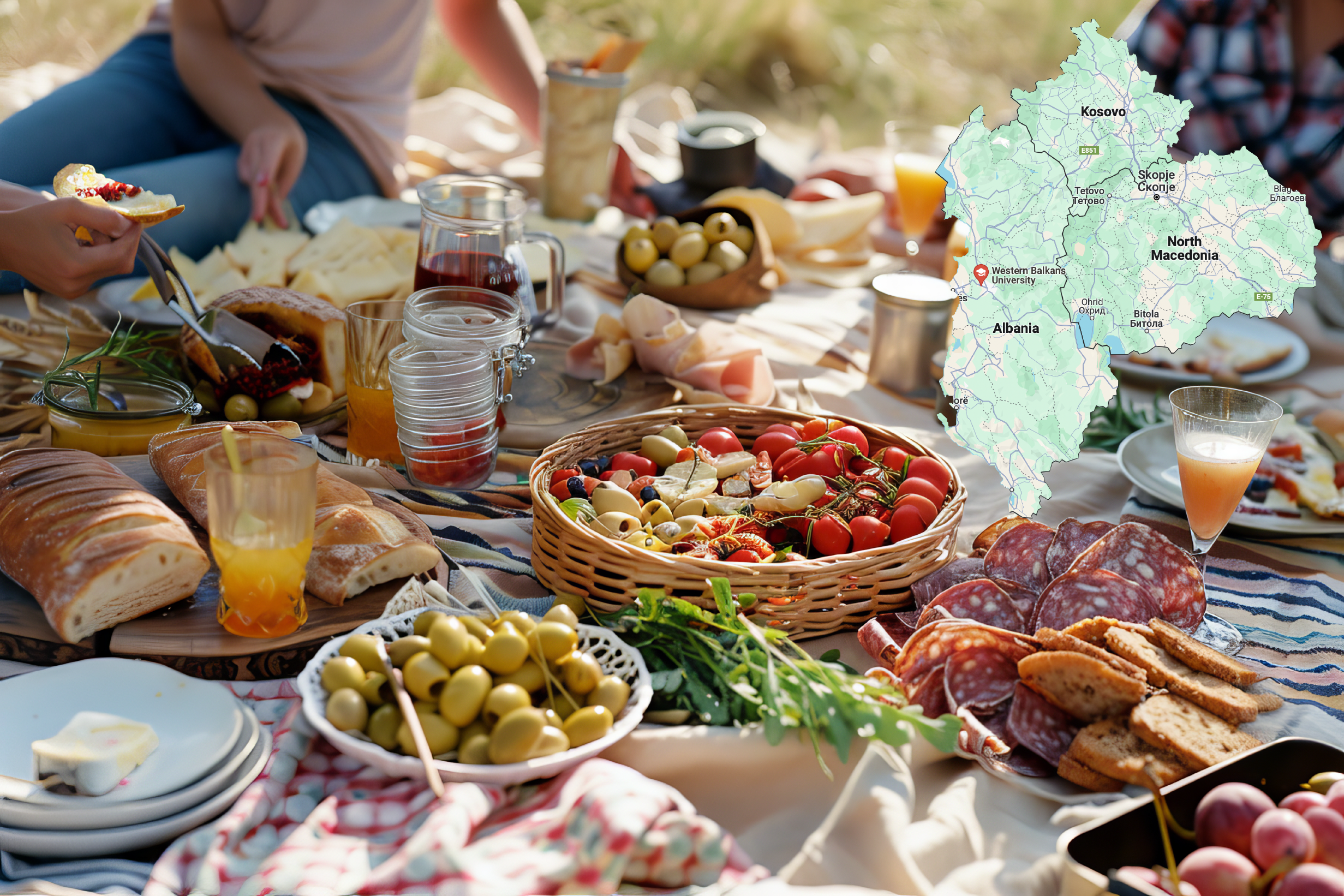
🍃 Sustainable Agri-Food Value Chains in the Western Balkans (SUSAVAL) 🌱
SUSAVAL, funded by BMBF under the Bridge2ERA2021 program, aims to strengthen partnerships between Germany, the EU, and Western Balkan (WB) countries like Albania, Kosovo, and North Macedonia. It focuses on developing competitive research proposals for Horizon Europe centered on innovative products and services within agricultural value chains. This seed funding project aims to enhance understanding of WB farmers’ perspectives and farming systems, with a special focus on Medicinal and Aromatic Plants (MAPs) and Non-Timber Forest Products (NTFPs). Addressing challenges related to market integration, food safety, and climate change adaptation/resilience, and it seeks to establish long-term partnerships to prepare robust Horizon European research proposals.
In March 2024, as part of the project, a study tour took place in the Western Balkans. The tour aimed to delve into the latest developments in agriculture, rural development, natural resource management, climate change implications and adaptations, and evolving sustainable food systems within the region. Through field trips and engagement with stakeholders, the tour provided insights into Medicinal and Aromatic Plants (MAPs) and Non-Timber Forest Products (NTFPs), among other focal areas.
During the tour, participants had the opportunity to visit key sites and interact with stakeholders. Highlights included visits to Agriculture University of Tirana (AUT) campus, , which also encompassed MAPs laboratory. During the visit, Prof. Dr. Dietrich Darr held a lecture titled “The methodology for the analysis of agrifood SMEs with focus on agroforestry value chains” with BA and MSc students from Faculty of Economics and Agribusiness (FEA). In addition, there was a meeting held with the senior level management of FEA.
Key findings from the tour highlighted challenges that can be addressed by future research related to NTFPs/MAPs, including rural-to-urban migration impacting wild resources (e.g. wild MAPs collection), as well as challenges related to MAPs cultivation efforts due to safety and quality standards, while a priority is on preserving wild MAPs attributes. Understanding migration trends and its impact on sector development is crucial for policy and research. Furthermore climate change affects NTFPs/MAPs differently based on type and region. It influences insect populations, emergence of new pests, and alters plant phenology, seed production, and quality. High temperatures decrease productivity and affect medicinal properties. Some species may migrate or face extinction, necessitating adaptation strategies. More insight is needed regarding climate change adaptation in general and related to NTFPs/MAPs specifically. Moreover growing tourism offers value-added opportunities but poses threats, especially uncontrolled mass tourism. Sustainable tourism approaches should be explored to mitigate negative impacts on NTFPs/MAPs sectors.
Overall, the study tour facilitated knowledge exchange, fine-tuning of research work, and identification of potential partners for future Horizon Europe research proposals, contributing to the broader objectives of the SUSAVAL project.
Image © by freepik
Sustainable Food Systems Research Centre
Marie-Curie-Straße 1
47533 Kleve
Deutschland/Germany

